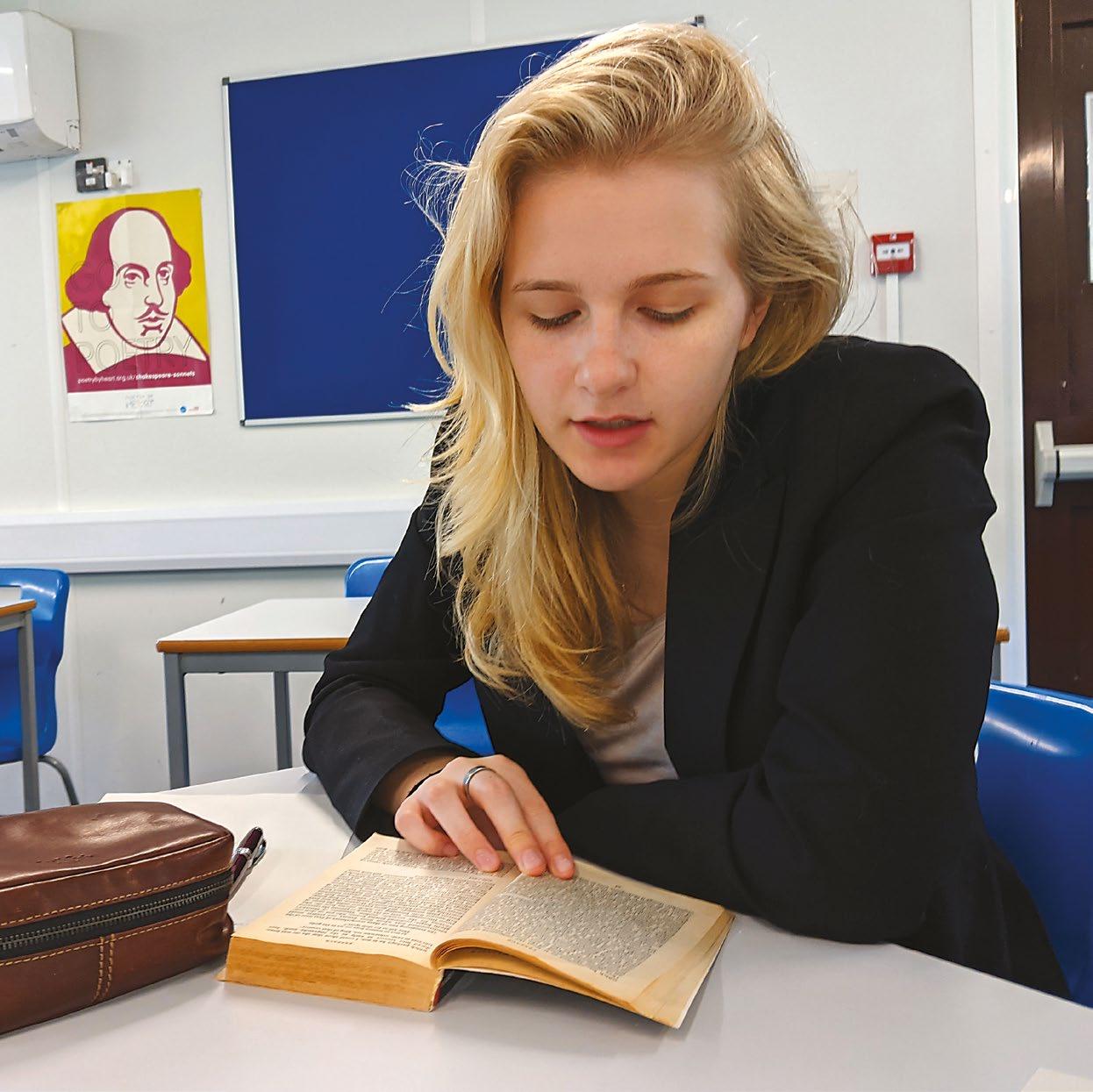
4 minute read
The Claremont Futures Programme
SAM COTSFORD, HEAD OF FUTURES
The Claremont Futures team sit at the heart of the Sixth Form. Our Head of Futures works with students both on formal occasions (such as Futures week) and on a regular, ad hoc basis.
Advertisement
Our programme offers individualised coaching for our Sixth Formers to introduce them to the wide range of exciting opportunities open to them when they leave school. Year 12 students receive a weekly, timetabled careers and futures session and a dedicated Futures week in the summer term of year 12. Our software programme, Unifrog, guides students and parents through the complexities of the UCAS application process. In addition, the depth and breadth of apprenticeships available to school leavers has exploded in recent years, and these are promoted to students in conjunction, and alongside, universities.
Each student at Claremont has their own individual Unifrog account, giving them direct access to the world’s largest database of post-16 opportunities. Students can search universities at home and abroad based on their expected grades and filter searches based on their personal requirements such as Russell Group Universities, city campuses and location. Once students select their choices, they are provided with full details of the course and university, including world rankings, employability, student satisfaction and graduate starting salary. In addition, students use Unifrog to search for live apprenticeship opportunities, international universities and MOOCS (Massive Online Open Courses).
“Be Yourself at Claremont” is our mission and this approach is maintained throughout the Sixth Form with the aim of inspiring our students to pursue whichever pathway is right for them. As a school with excellent pupil:teacher ratios, we can really find out about our students on an individual level, help them identify what their ambitions are and make informed choices. All students receive individualised guidance on the UCAS process, right from setting up an account through to analysing and assessing final offers. The Futures team is also the first point of contact for parents, to help regularly update them on their son or daughter’s application progress.
The Sixth Form team also support alternative pathways, such as degree apprenticeships. We offer bespoke advice and guidance and work closely with outside organisations to ensure the most relevant and up-to-date information is offered to our students. Recent examples of outside speakers include ASK apprenticeships, who have run several workshops over the last academic year, and Inside Knowledge, who run a workshop helping students with employability skills.
Our door is always open - please come and see us in action.

English Literature A level is the keystone to a Liberal Arts education. Classed as an enabling subject by the Russell Group universities, an award in English Literature
A level is looked on favourably by university admissions services. It is an excellent choice for those going on to study Arts and Humanities subjects, Languages, Business or Law at university.
Challenging, yet rewarding, English Literature
A level develops students’ skills of literary analysis and evaluation through the study of prose, poetry and drama. English Literature A level encourages students to engage critically and creatively with texts and to undertake independent and sustained studies to deepen their understanding of literature, including its changing traditions.
Students will be introduced to a range of literary texts from the canon, from the Victorian novel and a Shakespeare play to the study of 21st Century British poetry.
EXAM BOARD: Edexcel A Level
ASSESSMENT: Exams at the end of Year 13
COURSE CONTENT:
Component 1: Drama. Worth 30% of the A level. Candidates answer two questions: one on the Shakespeare play Hamlet and one on the modern play, A Streetcar Named Desire by Tennesse Williams.
Component 2: Prose. Worth 20% of the A level. Candidates answer on two prose texts with a common thematic link of ‘The Supernatural’: Dracula by Bram Stoker and Beloved by Toni Morrison.
Component 3: Poetry. Worth 30% of the A level. Candidates answer two questions: one on an unseen poem which they compare with one from a 21st century anthology of British poetry; the second is on a pre-1900 poetry text: The Selected Keats.
Component 4: Coursework. Worth 20% of the A level. Candidates devise their own question (based on their own chosen area of research) and write a comparative essay of two texts. An example from a previous year was a comparison of ‘A Handmaid’s Tale’ by Margaret Atwood and ‘Station Eleven’ by Emily St John Mandel.
WHERE NEXT? English Literature A level prepares students for a wide range of careers and university courses. Through developing powers of critical thinking, literary awareness and the ability to write extended prose, an A level in English Literature might lead to careers in Publishing, Journalism, Teaching or Law to name but a few.
OFTEN STUDIED WITH: Complimenting almost anything, English Literature does sit well with the Humanities, Foreign Languages and creative subjects like Drama or Art.

Whether students study A level French as a stepping stone to university or to enhance their career prospects, this course will help them deepen their understanding of the French language and develop an appreciation of the literature, film and culture of the French-speaking world.
It encourages students to explore aspects of French modern society, such as the evolving attitudes to marriage, the impact of music on contemporary culture, freedom of expression and the challenges of integration and multiculturalism. The course enables students to engage critically with intellectually stimulating topics and encourages them to become autonomous, creative and resourceful critical thinkers with a cognitive flexibility that will enable them to take their place in a multinational world.
EXAM BOARD: AQA A Level ASSESSMENT: Exams at the end of Year 13
COURSE CONTENT:
Paper 1: Listening, Reading and Writing (50%)
Students will listen and respond to questions based on a range of contexts and sources covering different registers. They will also read a variety of texts drawn from a range of authentic sources and will be required to undertake two translation exercises.
Paper 2: Writing (20%)
Students will write a critical and analytical response to aspects of a film and a text studied during the course.
Paper 3: Speaking (30%)
Students will discuss one of the topics studied throughout the course, with the discussion based on a stimulus card. They will also do a presentation about a topic they have researched individually and engage in a discussion about this topic.
WHERE NEXT? Many universities consider the experience of learning a foreign language a vital element of a broad and balanced education. As language skills are in scarce supply and can be used in almost any job, speaking French greatly increases students’ career prospects by giving them a head start on other potential employees in a multitude of businesses. Besides the obvious teaching, translating and interpreting careers, speaking French potentially opens up more opportunities in firms that operate on an international basis in Finance, Law, Sales and Marketing, Food and Drink, Transport, Tourism and Leisure, the Civil Service and in European as well as international organisations.
OFTEN STUDIED WITH: English Literature, Mathematics, Science, History, Economics, and Fine Art.




